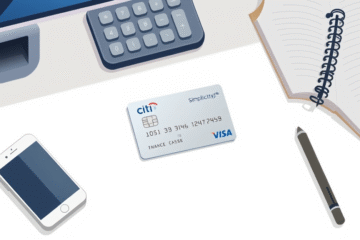Is a Prepaid Credit Card Worth the Cost
Prepaid Credit cards are an increasingly popular financial tool for those seeking a manageable way to handle their finances.
They provide an accessible alternative for individuals lacking a credit history or those who find it challenging to keep their spending in check.
This article will delve into the benefits of prepaid credit cards, their role in spending control, the convenience they offer for transactions, and their limitations regarding credit history and potential fees.
By understanding these aspects, users can make informed decisions about incorporating prepaid credit cards into their financial strategies.
Understanding Prepaid Credit Cards
Understanding the dynamics of prepaid credit cards opens up a world of financial control and convenience.
A prepaid credit card functions by allowing individuals to load a defined amount of money onto the card.
Unlike traditional debit or credit cards, which withdraw funds directly from a bank account or offer a line of credit, prepaid cards are loaded with funds in advance and cannot be overdrawn.
This setup delivers a significant advantage for individuals focusing on budgeting, as it aids in keeping expenditures in check.
In addition, these cards serve as excellent tools for gift-giving or travel, eliminating the worry of overspending or incurring debt.
Unlike credit cards, prepaid cards do not require credit checks, which simplifies the process for those without an extensive credit history.
However, this also means prepaid cards do not contribute to building a credit score.
Are these cards genuinely beneficial for all, or are there hidden inconveniences lurking behind their simplicity?
Positive Aspects of Prepaid Credit Cards
Prepaid credit cards present numerous advantages appealing to a diverse range of users.
They offer significant perks such as
- no credit checks
- limited risk of overspending
- easy expense tracking
- worldwide acceptance on major networks
which make them a strategic choice for individuals managing tight finances.
A key benefit is spending control, as users load a defined amount onto the card to keep expenses in check without the fear of overdraft fees.
Additionally, the convenience of prepaid cards allows for flexible purchasing both online and in-person, similar to traditional credit cards yet without revolving debt.
They are widely accepted and function within networks such as Visa and MasterCard, giving users easy access to funds globally.
For those who struggle with discipline in financial management, prepaid cards are a tool for safer budgeting.
They help structure spending into set limits, encouraging thoughtful purchasing decisions, and offer an excellent way for teens to learn financial responsibility while providing peace of mind for parents.
Travelers enjoy the added security, as no direct link to a bank account protects against major financial loss in case of theft.
These benefits matter because they empower financial independence without risking debt, providing a balanced approach to managing and controlling expenses efficiently.
Fees and Limitations to Watch
Prepaid cards present several disenchantments despite their utility for budgeting.
One must be aware of the typical fees associated with these cards.
Prepaid cardholders often face activation fees, triggering a financial outlay just for owning the card.
These are accompanied by monthly maintenance fees, which are recurring, reducing the card’s loaded balance over time.
Moreover, the cost incurred with reload charges each time funds are added can subtract from careful budgeting goals.
Below is a table summarizing key fees:
| Fee Type | Average Cost |
|---|---|
| Activation | $5–$9 |
| Monthly Maintenance | $4–$7 |
| Reload | $2–$4 |
| ATM Withdrawal | $2–$3 |
In addition, a major drawback is the cards’ inability to improve one’s credit score, posing a disadvantage for individuals aiming to boost their creditworthiness.
Besides, some users may encounter acceptance issues at select merchants, as not all businesses accept prepaid cards.
Before committing to a prepaid card, consumers should diligently review the fee schedules as outlined in their cardholder agreements.
This scrutiny will ensure users weigh these downsides against potential benefits, allowing them to make informed decisions tailored to their financial needs.
Explore card comparisons to deepen understanding of these financial tools.
Matching Prepaid Cards to User Profiles
Prepaid cards present a viable financial tool for various consumer groups seeking budgeting simplicity and spending control.
They are highly beneficial for individuals who want to avoid debt, as these cards enable users to load a specific amount, thus ensuring they don’t overspend or accrue high-interest debt.
In real-life scenarios, parents supervising teen spending find these cards effective for managing allowances, allowing teens to experience financial independence within set limits.
Similarly, people outside mainstream banking, such as those lacking access to traditional bank accounts, can benefit immensely.
A college student studying abroad might find a prepaid card ideal due to its safety and universal acceptance for online and in-person transactions.
Meanwhile, gig workers, often paid in cash, can use prepaid cards to manage earnings and protect against theft.
In comparison to secured credit cards, which require an upfront deposit and help build credit, prepaid cards focus on financial independence without impacting credit history.
To understand further the benefits and potential pitfalls, consumers can explore more about prepaid cards on the American Progress site for insightful guidance.
“
Your Personal Decision Path
Deciding on a prepaid card requires thoughtful consideration of one’s personal spending habits and financial goals.
To begin, it’s crucial to evaluate how a prepaid card fits into your lifestyle by reviewing types of cards that align with your financial practices.
This includes checking fee structures, understanding any potential charges that might arise from regular use.
Knowing your budget and spending patterns will guide you, especially if you intend to use the card regularly.
Transitioning to specifics, make sure to look into confirming spending limits which can affect how frequently you can use the card without topping it up.
Furthermore, reviewing reload options is essential as ease of reloading determines user convenience.
While prepaid cards don’t influence your credit score, considering credit impact remains vital if building credit is a long-term objective.
Encourage a thorough comparison between available options; this ensures the chosen card meets personal requirements effectively.
Conduct an analysis with your future financial strategy in mind, emphasizing a match between the card’s capabilities and your plans for managing finances sustainably.
Prepaid Credit cards offer a practical solution for budgeting and avoiding debt while providing convenience for purchases.
However, understanding their limitations regarding credit building and potential fees is crucial for users looking to optimize their financial management.



0 Comments